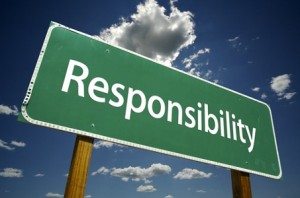CAFC Rules Personal Liability
Court Rules that “Individual Employees” may be
Personally Liable for a Company’s Import Entry Violations
Just recently, a decision by the Court of Appeals for the Federal Circuit could make a company’s employees personally liable for Import Entry Violations under statute (19 USC 1592 (a)). This decision was made on September 16, 2014. The court reversed a split decision from August of 2013 by distinguishing those who “enter” goods (i.e. importers of record) and those who “introduce” goods (i.e. individuals) into the commerce of the U.S. The decision creates a very broad category which could include compliance officers and employees of a company. Statute 19 USC 1592(a)(1) prohibits any person from fraudulently or negligently entering, introducing or attempting to introduce merchandise into U.S. Commerce by means of any document or electronically transmitted data or information, written or oral statement, or act that is material and false or any material omission. The case at matter was U.S. v. Trek Leather Inc. and Harish Shadadpuri and the decision centers on the valuation of assists as Trek had failed to include the cost of fabric assists into the price paid or payable for 72 entries of men’s suits. Shadadpuri, Trek’s president and sole shareholder argued that he could not be held personally liable for the failure because he did not serve as the importer of record. The court disagreed and ruled that 19 USC 1592(a)(1) applies to any person, regardless of whether or not they are an importer of record and that “there is simply no basis for giving an artificially limited meaning to this most encompassing of terms, which plainly covers a human being.” The CAFC then found Shadadpuri was grossly negligent in introducing goods into U.S. Commerce because he (a) transferred ownership of the goods to a company of his choosing while in transit and (b) furnished to the hired Customs Broker, commercial invoices that materially understated the value of the merchandise. The CAFC was sure to emphasize in its decision that “a person who personally commits a wrongful act is not relieved of liability because the person was acting for another. The decision should be especially scary for import managers and compliance officers, said Peterson. The article “CAFC Turnaround in Corporate officer Liability Suit May Create New Risks for Compliance,” found in International Trade Today for Wednesday, September 17, 2014 Vol.30 No. 180, states who in fact is responsible or directly affected:
“Trek Leather suggests that [a] person, in the course of acting as an agent for the corporate importer of record, could be individually liable as an ‘introducer,'” he said. “If I’m an importer manager for a company, handling the documents for entries, I’m knocking on my boss’ door, demanding an indemnity from the company.” Larry Friedman, a customs lawyer with Barnes Richardson, also said the decision may most directly affect corporate compliance employees and small business owners. “This means that really anyone who provides incorrect information to Customs in conjunction with an entry (or attempted entry) might be liable for a material false statement or omission,” he said. “The party will still have the ability to show that he or she made the statement using reasonable care, but that is not always easy to accomplish. “
Notably, though, the court did not say that the penalties “could be imposed on corporate shareholders and officers without first piercing the corporate veil,” Peterson said. “Officers and shareholders of large companies, who are less likely to be directly involved with import operations, have little to worry about” while owners of closely held companies face far more risk, he said.
 Business Owners, Compliance Officers, Import Managers, and Financial Officers must understand that they can now be held personally liable under the U.S. Customs and Border Protection penalty statutes for fraudulently or negligently providing information on company imports. This decision should also concern any individual who is directly involved in the import process for their companies. “Reasonable Care” standards must be followed concerning all aspects of your import business including:
Business Owners, Compliance Officers, Import Managers, and Financial Officers must understand that they can now be held personally liable under the U.S. Customs and Border Protection penalty statutes for fraudulently or negligently providing information on company imports. This decision should also concern any individual who is directly involved in the import process for their companies. “Reasonable Care” standards must be followed concerning all aspects of your import business including:
- Valuation
- Documentation
- Record Keeping
- Country of Origin
- Classification
I also encourage you to think about your relationship with your Customs Broker. Ask yourself these questions:
- Do you know who your Customs Broker is?
- Are you using a broker you trust to look after your best interest?
- Does your broker provide you a “call center” level of care or personal care and attention from a primary point of contact?
- How many Licensed Customs Brokers does your Customs Broker have in-house and do you have access to the collective knowledge of all Licensed Customs Brokers?
- Is your Customs Broker involved Nationally, Regionally, and locally to support your business efforts and keep up to date with the latest information?
- Does your broker offer training and consulting to help you meet your reasonable care standards?
Using a respected knowledgeable broker who cares about your business and compliance and is capable of helping you to quickly amend errors, when made, can be an asset to not just your business but now to you as an individual. Scarbrough International, Ltd. is available to discuss your liabilities and help you to achieve the reasonable care standards needed. We have been proudly serving importers for more than 30 years with 50% of our executives working as Licensed Customs Brokers.
